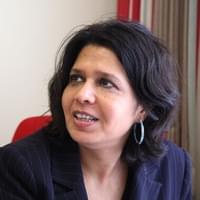
Big ideas are the key to the youth vote
A bold policy agenda is needed to engage young people in politics, writes Ben Rochelle.
With fewer than 90 days to go until the General Election, there are rising concerns over the lack of youth engagement with politics.
At the 1970 election, 65 per cent of 18-24 year olds turned out to vote, compared to 77 per cent of over 65s. Not a huge gap. But by 2005 just 38 per cent of 18-24 year olds voted, compared to 75 per cent of over 65s. The old were twice as likely to vote as the young.
And so various ideas continue to be churned out about how to get young people to vote.
Facebook is going to prompt all its users to register to vote. Bite the Ballot, a campaign group, is encouraging its young members to do the same.
John Bercow, the House of Commons Speaker, believes that young people should be able to cast their votes online. Meanwhile the Commons Political and Constitutional Reform Committee has launched a report on significant reforms to the voting system. One of the key recommendations is introducing compulsory voting.
Earlier this week Kate Crowhurst suggested in The Telegraph that investment needs to be made in political education in schools in order to rekindle democratic engagement. She claims that a politics education curriculum would equip young people with a "grounding in political theory, the knowledge to dissect the views put forward by their representatives and the ability to debate with them on best practice."
There is no doubt that a political education would indeed do these things. But is this necessary in order to take an interest in politics and vote?
The heart of the problem is that young people don't know what they're voting for.
In times gone by there were clear ideologies and principles to distinguish between: Left and Right, socialism and capitalism. True, Labour has been pulled further Left under Miliband. There is more to separate Labour and the Tories now than during the Blair years. But even still most political debate between the main parties centres on mildly differing views on how the deficit should be addressed or what the precise cap on immigration should be. Rarely does debate go beyond this. The limits of debate are so often very narrow.
We saw this with the debate on Scottish independence. Rather than tackle fundamental questions on the future of the union or what it means to be British so much of the debate seemed to spin on whether Scots would be a few hundred pounds better off or worse off in an independent Scotland.
We need bigger ideas in order to stir the passions and feelings of young people. We need leaders who rather than pander to the interests of young people, only talking about policies that are most relevant to them (tuition fees for example), offer big visions and give young people real choices.
Until our politics is injected with this young people will remain on the outside. And will see little reason to look in.










